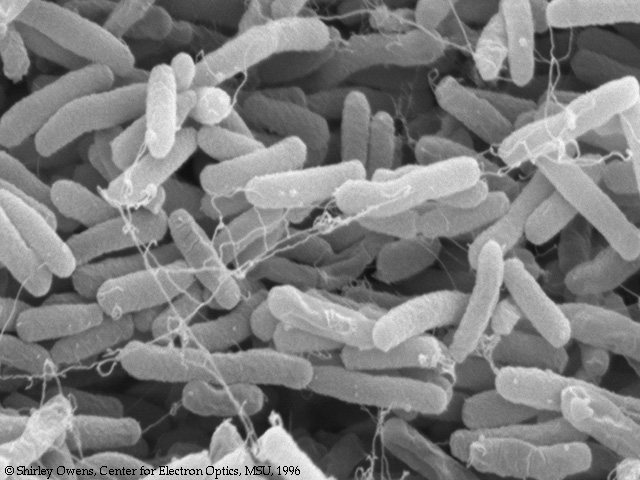
 |
Freethought & Rationalism ArchiveThe archives are read only. |
|
|
#311 |
|
Veteran Member
Join Date: Mar 2002
Location: anywhere
Posts: 1,976
|
Tell me Keith, is this a picture of something complex?
|
|
|
|
|
#312 |
|
Veteran Member
Join Date: Mar 2002
Location: anywhere
Posts: 1,976
|
Or is this complex?
 Which is more complex of the two? |
|
|
|
|
#313 | |
|
Senior Member
Join Date: Jan 2003
Location: S. England, and S. California
Posts: 616
|
Quote:
Keith |
|
|
|
|
|
#314 | ||
|
Veteran Member
Join Date: Mar 2002
Location: anywhere
Posts: 1,976
|
Quote:
Quote:
|
||
|
|
|
|
#315 |
|
Veteran Member
Join Date: Jul 2002
Location: East Coast. Australia.
Posts: 5,455
|
Another casualty of the travesty that is the terminology of 'micro' and 'macro' evolution.
Seriously, keith, for your own sanity, forget that you ever heard those terms. They don't mean anything. Really, just pretend they don't exist. |
|
|
|
|
#316 | |
|
Senior Member
Join Date: Jan 2003
Location: S. England, and S. California
Posts: 616
|
Quote:
I'm still rejecting the notion that evolution is capable of producing great complexity without an intelligent blueprint (design or algorithm). This part has still NOT been shown. I always cringe when people say "given abiogenesis, evolution is hardly a problem." It's a bit like saying "given 100 million dollars, I can easily make a few million dollars every year." Keith |
|
|
|
|
|
#317 | |
|
Senior Member
Join Date: Jan 2003
Location: S. England, and S. California
Posts: 616
|
Quote:
Keith |
|
|
|
|
|
#318 | ||||
|
Veteran Member
Join Date: Mar 2002
Location: anywhere
Posts: 1,976
|
Quote:
Quote:
Quote:
Quote:
|
||||
|
|
|
|
#319 |
|
Veteran Member
Join Date: Jul 2002
Location: East Coast. Australia.
Posts: 5,455
|
I asked you to please point out exactly what your problem with the arguments you have been given is. Please do so, as to attempt to deliver the entire evolutionary theory together with its accompanying evidence would require considerably more than a small library of text. Allow me to narrow the problem down for you.
Where do you draw the line: 1. Populations are variable. 2. Traits in populations naturally increase in frequency if they are beneficial. (observable in bacteria, for instance) 3. This phenomenon can permanently alter the features of populations. 4. This permanent alteration can increase complexity. For example: a simple jellyfish consisting of a few unspecialised cells could gradually evolve an internal pouch with specialised internal cells for use as a stomach. (if you do not agree that this is possible, please suggest something that might prevent it from happening) 5. Because populations can change in this way, it is possible for one breeding population to diverge into two, slightly different populations that cannot interbreed. (speciation, as seen in galapagos finches. Remember that speciation has been observed many times.) 6. These small, permanent alterations and the phenomenon of speciation can account for the origins of a rudimentary biodiversity. 7. there is no limit to the amount of change that these processes can affect in populations. (if you disagree with this, please enlighten us where the limits are, and what causes these limits. Finally 8. That this, in fact, happened, and it accounts for life on earth. |
|
|
|
|
#320 | |||
|
Veteran Member
Join Date: Mar 2002
Location: anywhere
Posts: 1,976
|
Quote:
 [Here is the legend: H = human (note there's only one), C = chimp, G = gorillla, O = orangutan] [Here is the legend: H = human (note there's only one), C = chimp, G = gorillla, O = orangutan]Now, how would you, Keith, go about researching why these banding patterns are so similar? Furthermore, if you accept variations in finch beaks, why would you have a problem accepting variations in chr. 5 as illustrated above? Quote:
Quote:
|
|||
|
|
| Thread Tools | Search this Thread |
|